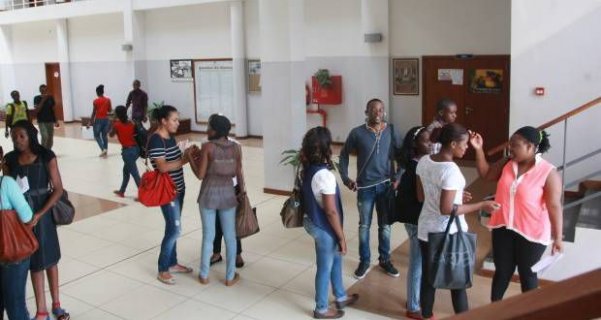The resumption of classes in higher education and secondary education is scheduled for 13 July, but "dependent on the evolution of the epidemiological situation" in the light of the decree determining the public disaster situation in Angola.
According to the president of the Association of Students of Private Universities of Angola (AEUPA), at a recent meeting the leaders of university students "did not agree" with the resumption of classes because they considered it "too early to prepare the conditions".
For Joaquim Caiombo, who believes in the good will of institutions to guarantee biosecurity material, the students are "reticent because there were, even before the pandemic, institutions that did not guarantee hygiene material".
"And at a time like this when institutions don't even have the money to pay staff and depend exclusively on tuition fees, we believe it will be difficult for them, hence the need for them to have more time to prepare," he told Lusa.
The leader of the AEUPA understands that because it is about life the issue of biosafety material and the hygienization of spaces must be strictly observed and the time for preparation of conditions must also be considered.
Classes in higher education were suspended in March before the President, João Lourenço, decreed a state of emergency which took place between 27 March and 25 May.
Since 26 May, Angola has been experiencing a public calamity to contain the spread of covid-19.
Joaquim Caiombo also questioned how institutions of higher education should divide the classes to ensure physical distance, recalling that on normal days the classes "become crowded.
"And our doubt is where the institutions will find classes to separate the students," he said.
Concerns about the regular guarantee of biosecurity material in educational institutions were also raised by the Movement of Angolan Students (MEA), which speaks of "some slowness by the authorities" in this area.
According to the president of the MEA, Francisco Teixeira, public high schools and universities so far show no trace of creating conditions for hygiene of students.
"And what we have seen so far is that nothing has yet been created, and it is known that many universities do not have running water, many are supplied by cisterns, we hoped to find the drums now, but so far there is no change," he told Lusa.
Reaffirming students' skepticism, Francisco Teixeira said public education leaders in the country "are capable of creating biosecurity conditions of up to 30 percent in schools in downtown cities and those in the periphery being abandoned.
"It is like this in Luanda and other provinces of the country, hence our scepticism about compliance," he added.
Already the University Agostinho Neto, the oldest and largest public university in the country, which provides 45 courses in nine organic units, created a working group to prepare a contingency plan for the resumption of the academic year.
According to the calendar readjusted by the Ministry of Higher Education, Science, Technology and Innovation the classes start again on July 13 and run until March 2021.
On a global level, according to an AFP balance sheet, the covid-19 pandemic has already caused more than 408,000 deaths and infected more than 7.1 million people in 196 countries and territories.







